Brain Health Perspectives



Oct. 9-13, 2023
Johannesburg, South Africa
#ABHNbrainhealth23
TABLE OF CONTENTS
A Welcome Message
Purpose and Expectations
Our commitment to each other
Brain Health and the African Brain Health Network
Our Journey Together
The Program Agenda
The Participants’ Bios
Useful information for your trip
Staying in contact
Tranport
Hotel accommodation and meals
The weather
Health and COVID-19 care
Emergency information
Safety tips in South Africa
Travel insurance
Documentation at the airport
Money
Photography and Videography
Your own Outputs
The Hub and Social Media
In and around Johannesburg
Johannesburg Travel Guide
Shopping
African cuisine
Bars and Pubs
Arts and culture
Shopping and markets
Theaters
Nature and excursions
Data Management
About the Atlantic Institute

1
A Welcome Message
The Atlantic Institute is honored to welcome you to South Africa for the Brain Health Perspectives Thematic Convening, co-hosted with the African Brain Health Network (ABHN). We are excited to be exploring this topic in a country and city that is layered with many contradictions: where poverty sits alongside privilege, resulting in inequitable access to health care and other essential basic services. South Africa is the most unequal country in the world with more than half of the population living in poverty. It also has a deep history of collective trauma due to the violence of the apartheid system. Yet, post-apartheid Africa is celebrated for its human spirit, ideals of reconciliation and its attempts to rebuild a nation that is inclusive of all. This is in contrast to systemic failures that have exacerbated the collective trauma prevalent in everyday lived experiences. These are some of the critical factors that determine brain health and present the opportunity to look at how we can improve brain health in various contexts.
This reality also offers fertile ground for engaging with (k)new1 ways of thinking. This includes using Indigenous knowledge systems and decolonial methodologies to develop perspectives on brain health that are inclusive and relevant to an African context. Furthermore, in order to imagine a more equitable future of brain health, we must address inherent inequities in how this field has developed to date and think through how technology and innovation can be used. During our time together there will also be opportunities to engage with different perspectives on brain health, center Pan-African and Indigenous voices, workshop possible solutions and contribute to the strategy of the African Brain Health Network. Finally, we have partnered with TEDx Johannesburg to host a TEDtalk evening where we can amplify some emerging perspectives on brain health in the African context and beyond.
We are delighted that this convening will take place at the Nelson Mandela Foundation (NMF), known as the center of memory. The NMF serves as a partner to Atlantic Fellows for Racial Equity and is also a base for the Atlantic Institute’s activities in Africa.
Wamkelekile, Welcome,
The Atlantic Institute team
1 We define (k)new as solutions draw on our longer histories, knowledge, and ways of being, and are made possible by leaps in innovation

2
Purpose and Expectations
We define “convening” as a gathering of people who engage in an authentic dialogue that is open and built on trust. If we create the right environment for a meaningful convening, we have the right conditions to stimulate connection across the programs, disciplines, cultures and ideologies in the spirit of curiosity, reciprocity and collaboration. Place-based stimulating connection and collaboration can transform the self and the group and provide the catalyst for action. Thematic Convenings, hosted by the Atlantic Institute, are primarily focused on finding (k)new solutions2 .
Each Thematic Convening seeks to create the conditions for:
Connection – Providing the architecture and support for Fellows to intentionally connect, establish relationships of trust for learning, collaboration and impact. Courageous content – Providing the opportunity for Fellows to engage with one another on topics relating to equity that challenge their thinking and perspectives to stimulate transformation and learning.
Call to action – Building on connections and the courageous conversations and content to act for greater impact, with a focus on experimentation and testing.
We expect anyone who attends our convenings to continue forging lifelong connections with other Fellows to build new skills to develop themselves, and to exchange knowledge and collaborate with one another on projects for equity.
Our commitment to each other
The global community of Atlantic Fellows and staff is a purposeful, values-driven endeavor, which is making an impact for the benefit of others. It is also a gift exchange, with benefits as well as obligations. We ask that members of this community (all of us) give expression to our values in the following ways:

● Show up with kindness and integrity as you connect with people who bring
● different perspectives and experiences:
2 1 (K)new solutions draw on longer histories, knowledge and ways of being but those solutions also made possible by leaps in innovation to catalyze our community to thinking and action through the wisdom we collectively hold and possibility of the unimagined
3
● Share your own perspectives with authenticity, grace and care
● Sometimes step back and listen to others to ensure there is space for perspectives/narratives/ stories other than your own.
● Engage in courageous conversations (including disagreement) with kindness and empathy deconstruct but also focus on rebuilding and (k)new solutions.
● Recognize your own privilege and power, and take action to challenge the status quo and lived realities
● Feel free to reimagine a (k)new world with others in this community.
● Be mindful of others’ privacy, both in terms of what you share following an experience and on social media if you are photographing others.
● Be leaderly and respectful in the way that you honor the gift of the Atlantic community and, in particular:
● Show up on time for flights, transfers, and programming. Be present and respectful of each other and the convenors.
● Be generous with your time and, where possible, your resources in the spirit of reciprocity.
● Be kind and gracious in the receipt of resources. It is a community of love, but the staff are not your personal travel agents or assistants!
● Share the results of your experiences as an Atlantic Fellow inside and outside of this community.

We hope that our time together will re-energize and (re)inspire you to continue changing the lives of your people and beyond.
Respectful and courteous behavior towards our dedicated staff is a fundamental aspect of our Institute’s ethos. Fellows are kindly reminded that any form of abuse or mistreatment towards staff members may result in a request to leave the workshop.
4
Brain Health and the African Brain Health Network
This convening is hosted by the Atlantic Ins Network and will create a space for collectiv diverse perspectives and opportunities to innovate in the field of brain health.

Brain health is a relatively new field in health practice, policy and advocacy. Its potential lies in reducing the risk of certain illnesses, optimizing recovery from illness and in supporting approaches to promote health and well-being.
Approaches to brain health on the African continent need to be directed by the availability of resources (Africa is currently a low-resource setting) and its knowledge systems and priorities. The goal of this convening is to build this collective vision, develop the community and encourage conversations with diverse stakeholders.
The African Brain Health Network’s vision for the African continent:

● Focusing on health and not just disease management.
● Being open to plurality i.e., including practical and relevant approaches from different perspectives, communities and traditions.
● Understanding the wealth of knowledge, diversity and resources available.
● Developing a cohesive approach that integrates social, environmental, cultural and other determinants of health
● Creating a community for reflection, collective support and learning.
This convening is relevant to the Atlantic community as it directly addresses approaches to health and to equity, and includes people and knowledge systems that have been deliberately excluded from dominant global health systems and approaches.
5
Our Journey Together
Our Aims
● Nurture a cross-program community focused on brain health.
● Increase knowledge on brain health with a particular interest in Indigenous knowledge systems and develop a cohesive approach to brain health that integrates social, environmental, cultural and other determinants of health.
● Understand aspects of epistemological injustice as is relevant to the field of brain health.

● Explore different ways of practicing wellness and brain health including mindfulness, storytelling, drama therapy and through faith-based communities.
● Further the plan of action of the Afrian Brain Health Network and ideas reached through the collaborative efforts of Fellows.
Learning Goals
● As Fellows, you will have a deeper sense of the African context.
● You will have an increased understanding of critical issues related to brain health including Indigenous Knowledge systems (IKS) and decolonial theory, so they are able to apply it to their own contexts.
● You will be able to examine how various knowledge systems and cultural capital can be applied in rebuilding institutions.
● You should have a greater understanding of the role of non-pharmacological measures to support brain health.
● You should be able to articulate a systems approach to finding solutions to improve brain health.
● You have more ability to account for the threats and opportunities offered by developments in artificial intelligence and emerging technologies.
6


7
The Program Agenda
DAY 1: MONDAY, OCT. 9
Welcome and Connection: Centering Pan-African and Indigenous Voices

TIME ACTIVITY
9:00-9:15 Depart for Nelson Mandela Foundation (NMF)
9:15-10:15
10:15-11:00
11:00-13:00
13:00-14:00
14:00-15:30
15:30-17:30
17:30-18:20
18:30-21:30
SPEAKERS
Tour of NMF Verne Harris (CEO, NMF)
Welcome
Acknowledgement of place
Framing the week
Connection activity
Lunch
Grounding Part 1. Discussion: Understanding Brain Health & Considering Strategies to Support Brain Health
Verne Harris and Khalil Goga (Atlantic Institute)
Patronella Nqaba (Institute) and Mafoko Phomane (Framing)
Kirti Ranchod and Tendai Chisirimunhu
City Bus Tour from NMF Tshami Logistics
Return to hotel and free time before dinner
Dinner at Marble Restaurant (smart casual dress)
8
DAY 2: TUESDAY, OCT. 10
Intersections: Social, Economic, Historical and Health
9:00-9:15
9:30-10:15
Depart for Nelson Mandela Foundation (NMF)
Morning coffee/tea and check-in
Patronella Nqaba
10:15-11:45
Introduction to Indigenous knowledge
Dr Sinethemba Makanya (speaker)
Haydee ‘Nancy’ Rumaldo (Facilitator)
11:45-12:00
12:00-13:00
13:00-15:00
15:00-16:30
Tea break
Lunch break and travel to Constitution Hill
Constitution Hill tour
Offerings from the Atlantic Institute

Fellows’ ideation session
Khalil Goga
Aldridge Munyoro and René Sparks (Facilitators)
16:30-16:45
16:45-18:20
18:30-21:30
Wrap up and reflections
Return to the hotel and free time before dinner
Dinner and music at the Queen
Sheba Ethiopian Restaurant
Patronella Nqaba
A special performance by Pops Mohammed, celebrated South African multi-instrumentalist, jazz musician and producer, with Bongiwe Lusizi.
9
DAY 3: WEDNESDAY, OCT. 11
Intersections: Indigenous and traditional knowledge Systems, Culture, Environment and Health

9:00-9:30
9:30-10:30
Depart for Origins Centre
Morning check-in and framing Patronella Nqaba and René Sparks
Morning check-in and framing Morning check-in and framing
10:30-12:00
12:00-13:30
13:30-15:30
Cultural capital for health Kirti Ranchod
Lunch break
Non-pharmacological measures to support brain health
Ganzamungu Zihindula, Hany Ibrahim and Gabrielle Jackson
15:30-16:30
16:30
Small action groups and wrap up the day
Return to the hotel. Free time and self-organized dinner
Lingani Mbakile-Mahlanza and Patronella
10
Wellness as a Practice and TEDx Talk Evening
9:00-9:15
9:30-10:00
10:00-11:00
Depart for Nelson Mandela Foundation (NMF)
Morning check-in and framing Patronella Nqaba
Illness and systems thinking around brain health

Akshita Siddula and Kirsten Bobrow
11:00-11:15
11:15-12:15
Tea break
Sylvia Vollenhoven in conversation with Ntokozo Ngcobo
Sylvia Vollenhoven, award- winning journalist, filmmaker and writer
Ntokozo Ngcobo (facilitator)
12:15-13:15
13:15-14:15
Embodying Sornchai Chatwiriyachai and Kelvin Sauls
Lunch break
14:15-15:00 Free time
15:00-20:00
20:15
TEDx Talk at NMF
Return to hotel and self-organized dinner
TEDx team
11
DAY 4: THURSDAY, OCT. 12
Opportunities and Threats - Ideation
9:30-9:45
9:45-10:30
Depart for Nelson Mandela Foundation (NMF)
Morning check-in and framing Patronella Nqaba and Atholl Kleinhans
10:30-12:30
Emerging opportunities and threats and the future
Obiora Okoye
12:30-14:00
14:00-16:15
Lunch break
Next steps
Pinky Mashiane, Hyeladzira ‘Adzi’ Garnvwa, Atholl Kleinhans
16:15-17:00
Closing circle and appreciations

17:00 Return to hotel and self-organized dinner
Patronella Nqaba
12
DAY 5: FRIDAY, OCT. 13
The Participants’ Bios

Tendai Chisirimunhu Kathemba, a master’s student in psychology from the Western Cape, is committed to addressing mental health for social change. Tendai believes in a decolonial approach to mental health that is holistic and community-based, situating the everyday lived experiences of the people of South Africa and Africa. She hopes to bring an awareness to the challenges of mental health, contributing to healing communities using holistic modalities and finding s e applied within an African context. She believes collaboration, healthy community structures and strong networks are necessary to improve chances for transformation.
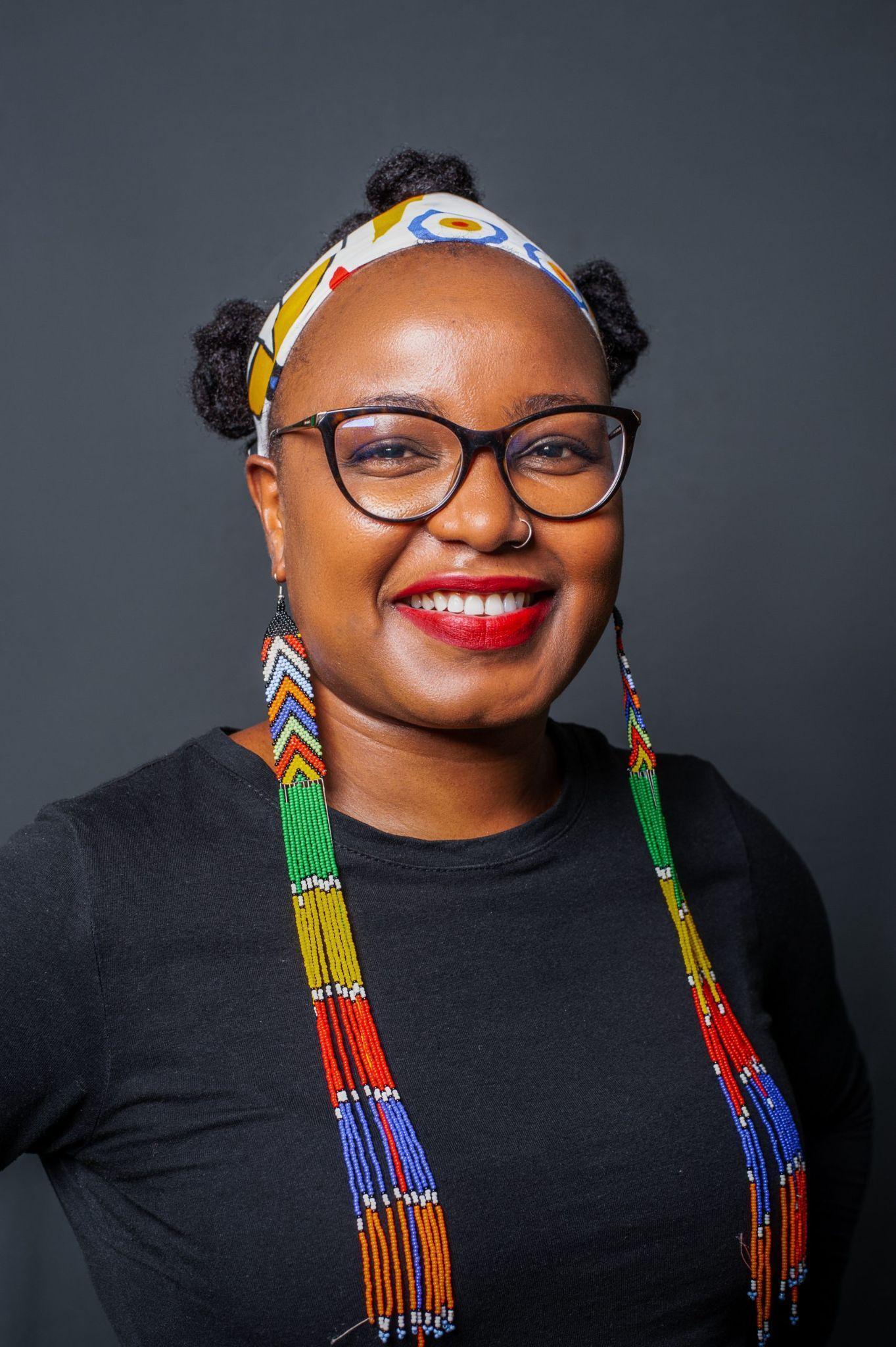
Chukwuanugo Ogbuagu is a medical doctor, public health physician-epidemiologist and an international clinical researcher with experience in three university teaching hospitals, the pharmaceutical industry, clinical trials, health advocacy and equity, and clinical management. His knowledge is in infectious diseases control to develop economies, health promotion, mental health and leadership.
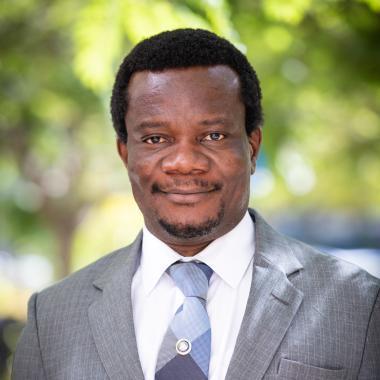
René Sparks is RTCQI/CLI Provincial Project Coordinator SEAD (Strategic Evaluation, Advisory & Development) Consulting Ltd and an Atlantic Fellow since 2019. Her efforts are in supporting HIV prevention programs for key and vulnerable populations in South Africa. She is active in numerous civil society roles, and passionate about access to quality health services.
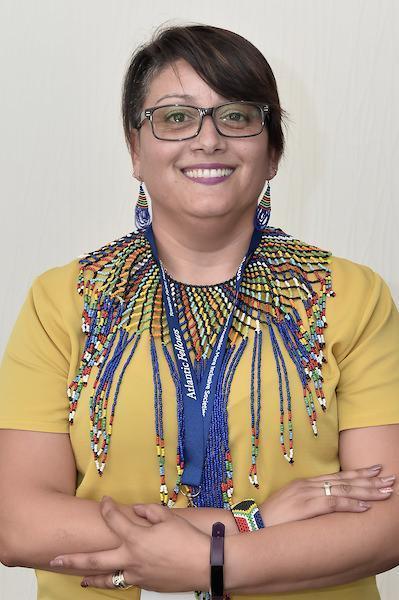
Obiora Okoye is a global public health researcher, who is working to create a collaboration across Sub-Saharan Africa to ensure the prioritization of brain health on the public health agenda. He plans to develop a pilot program to support patients and caregivers in Sub-Saharan Africa, where access to health facilities and brain health specialists is limited.

13
Khanyo Ngcobo is a psychiatrist with a vision to increase dementia awareness, and address modifiable risk factors that can reduce risk. She is keen to encourage the health and social systems to prioritize resources that prevent, treat and care for people with dementia. Khanyo has completed a descriptive research project on cognitive impairment. She is currently undertaking dementia clinical care and research aimed at improving service provision in a local context and is also involved in advocacy and awareness programs.
Ganzamungu Zihindula is a founder of Healthy Rural Societies (HRS). A Fellow since 2019, he is developing a care model for older people based in rural areas as one of the ways to combat the problems of Non-Communicable Diseases (NCDs) that are highly prevalent among the elderly.

Atholl Kleinhans is a lecturer at Sefako Makgatho Health Sciences University, South Africa. A Fellow since 2019, Atholl is working to improve access to health care for all sexual minority, gender and sexually diverse groups.
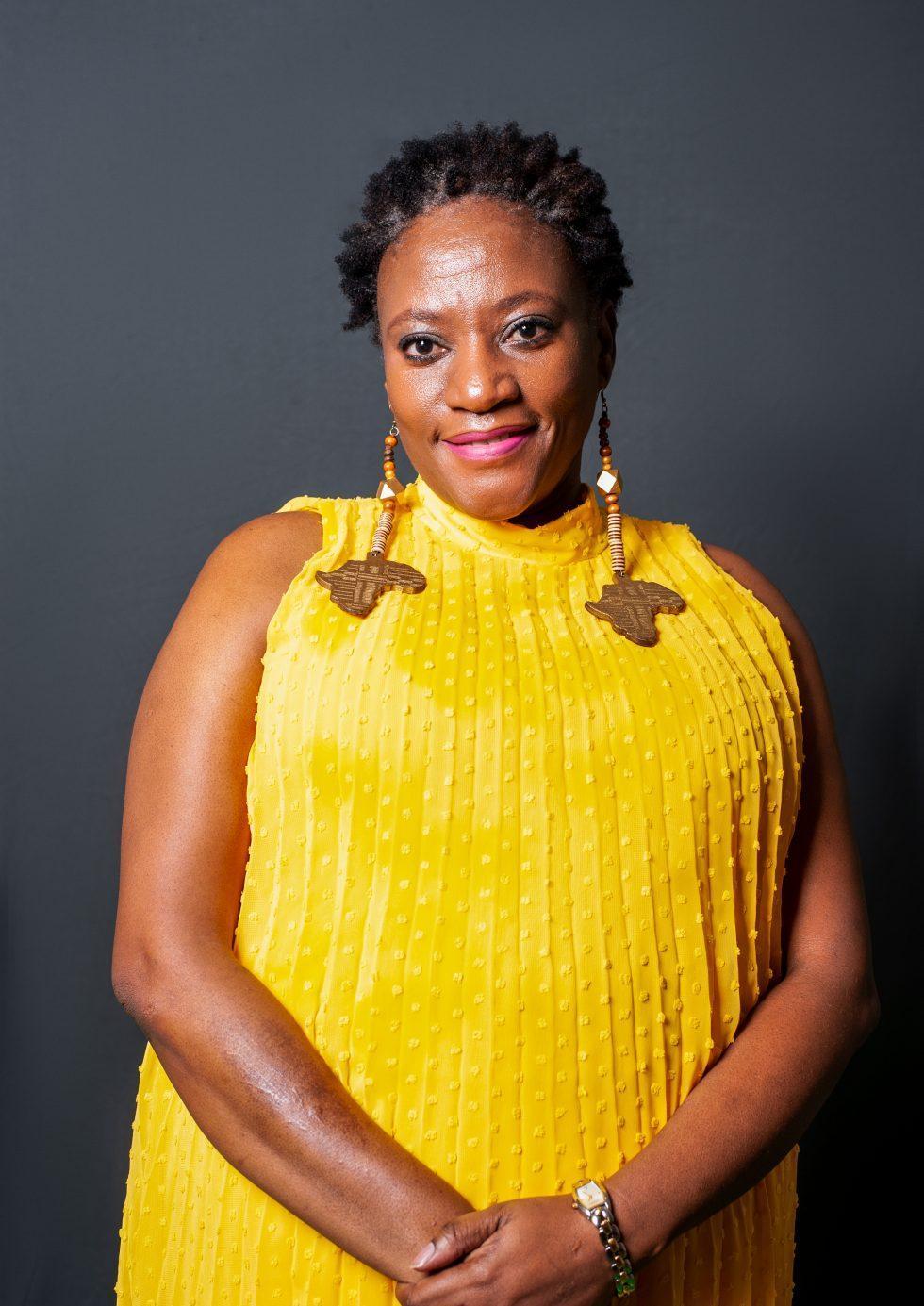

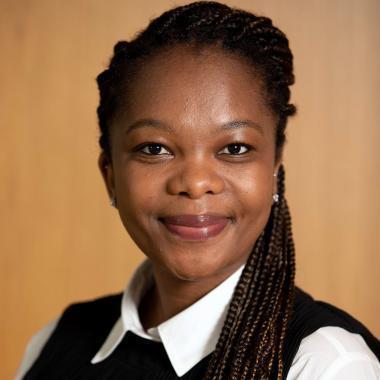

Nonzaliseko Magidiwana is a community activist focused on eradicating gender-based violence in the Eastern Cape, alongside advocating for LGBTQI+ rights. She is a health promoter and support group facilitator working toward empowering women, informing them about reproductive health issues. She focuses on building partnerships with community health care workers so women are empowered and have access to equal health care treatment, regardless of their ethnicity, geography or economic class.
Sornchai “Sonny” Chatwiriyachai is founder and artistic director of Malongdu Theatre and program director of Ashoka Thailand. He pioneered the practices of the “Theatre of the Oppressed” in Thailand and developing the capacity of social changemakers and seekers to stand up for social justice.

14
Selam Yoseph is a psychiatrist with a vision of working toward the recognition of dementia as one of the conditions that needs the attention of public health officials. Selam treats patients coming to her clinic with psychological and behavioural symptoms of dementia, and educates caregivers on how they can help their relatives without compromising their own psychological stability.

Bongiwe Lusizi is founding director of the Creative Academy and uses the name Mthwakazi as a Xhosa Opera singer-songwriter and performer. Mthwakazi has pioneered the new Xhopera music genre which synthesizes African bow music, classical music, opera, choral music and African dance rhythms. Mthwakazi is also a healer and jewelry designer.

Lingani Mbakile Mahlanza is a clinical neuropsychologist and is a lecturer (assistant professor) at the University of Botswana in the psychology department and as coordinator of the psychology clinic. She has a special interest in neurodegenerative conditions, traumatic brain injury and training in neuropsychology.



Akshita Siddula is a community organizer and a public health professional, based in Baltimore, Maryland, United States. She is the managing director of Right to Health Action (R2HA), a health advocacy group where she recruits and trains health care activists and organizers nationally to push for policies for a more just health care system.
Hany Ibrahim is a consultant geriatrician and senior lecturer at Ain Shams University Hospital, Cairo, Egypt. He is also the co-founder of Ain Shams Cognitive Training Lab and the East Mediterranean Brain Health Initiative. He is working to use modern technology and software platforms for an early detection and diagnosis of dementia.
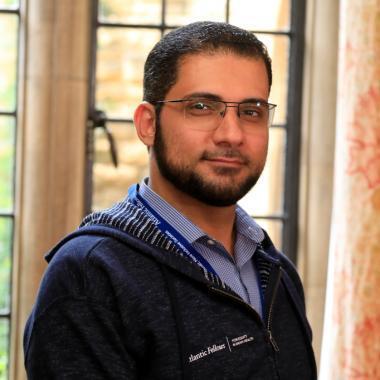
15
Gabrielle Jackson is a licensed independent clinical social worker in the Washington D.C. metropolitan area (lovingly known as the DMV). She is the owner and chief of Wellness and Care at Diasporic Healing LLC, where she is an individual therapy provider and is also available for consultations, training and speaking engagements.



Pinky Mashiane is founder and president of the United Domestic Workers of South Africa (UDWOSA), representing the interests of domestic workers, the most vulnerable workers in the world. She is determined to ensure that domestic workers are treated with respect and dignity. Her activism and advocacy for domestic workers helped change South Africa’s Compensation for Occupational Injuries and Diseases Act (COIDA), from which domestic workers were excluded until November 2020.
dridge Munyoro is a Ph.D. candidate at Wits University. He is so a social worker, scholar and social justice advocate, olding a Master of Arts degree in Development Studies pecializing in social and behavior change communication in ealth) and a bachelor’s degree in social work from Wits niversity.
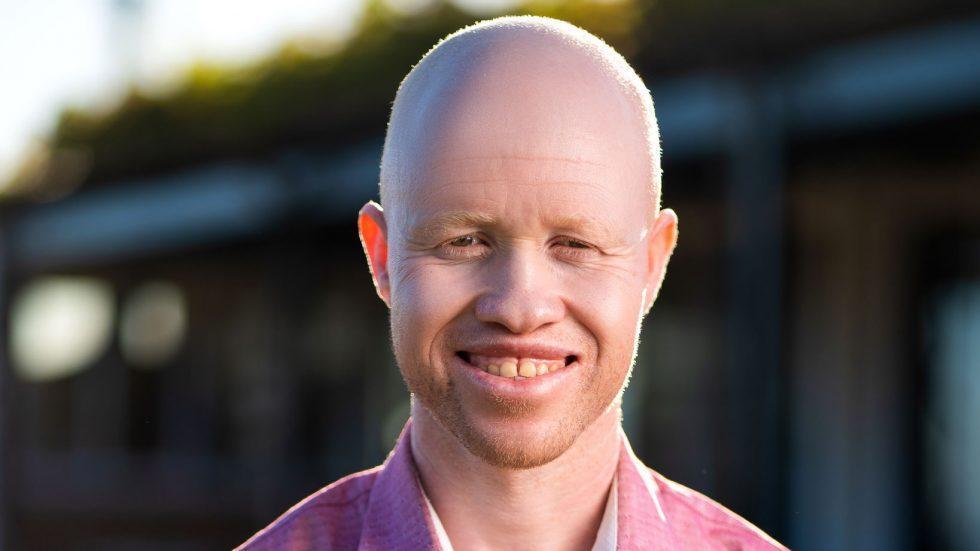
Kirsty Bobrow is a physician, epidemiologist and a post-doctoral researcher working in the Western Cape Department of Health. Her career has taken her across the globe. She completed her undergraduate medical training at the University of Cape Town, and her M.Sc. in Global Health and a doctorate in epidemiology at the University of Oxford. She is engaged in research into how mobile phones can improve management and outcomes in people with chronic diseases in low-resource settings.
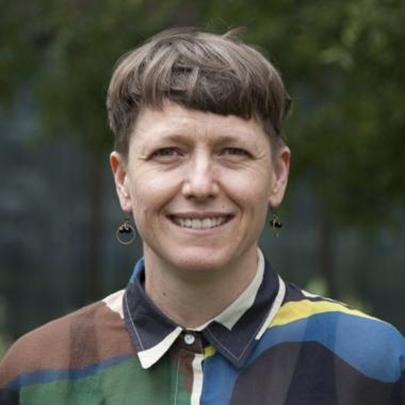
16
Haydeé “Nancy” Rumaldo is a nutritionist and program coordinator at Socios En Salud Sucursal Perú, a subsidiary of Partners in Health, which provides health care to people living in poverty through comprehensive interventions. Nancy holds a Master of Arts in Project Management and Social Programs from the Universidad Peruana Cayetano Heredia.
Kelvin Sauls is a community organizer and the former senior pastor of Holman United Methodist Church. He is an unapologetic progressive and a prophetic advocate ordained by the United Methodist Church (UMC) for over 20 years. He holds a master of divinity degree. Positions include: co-founder and board chair emeritus of Black Alliance for Justice Immigration; co-founder and board member of Priority Africa Network, Black Cooperative Investment Fund, Stand Together Against Neighborhood Drilling in Los Angeles; co-founder and board chair, South Los Angeles Transition Age Youth and Homeless Collaborative; city commissioner, Los Angeles Housing Services Authority.
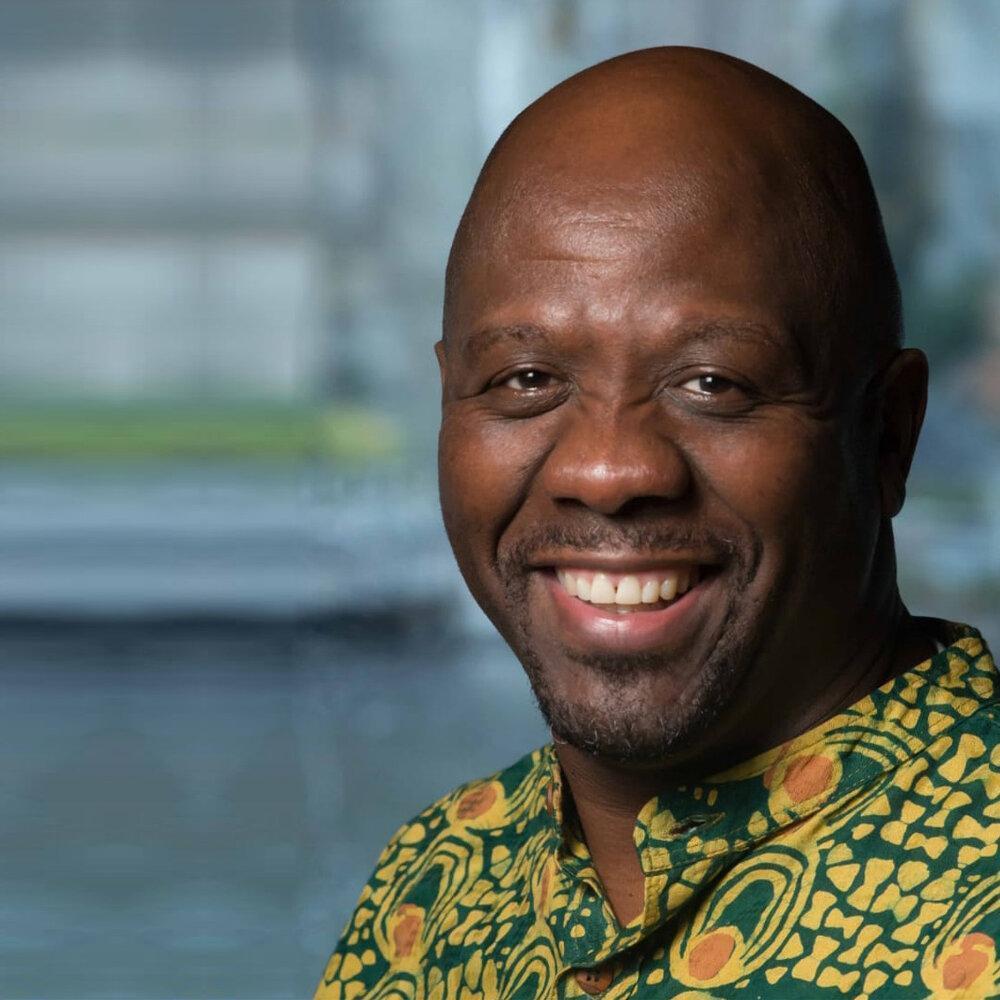
Hyeladzira Garnvwa is a health economist at the National Primary Health Care Development Agency (NPHCDA) in Abuja, Nigeria. In this role, Hyeladzira is actively involved in policy research, development, and implementation for results-based financing in health through the Nigeria State Health Investment Project.


Fellow Coordinators of the Convening
Kirti Ranchod is a neurologist who aims to make brain health practical and relevant. Through her work, she promotes an understanding of traditional and cultural practices which promote brain health. She focuses on promoting brain health in a cohesive manner that includes but is not limited to dementia prevention strategies. Her philosophy: Living well leads to better health and better health leads to a life well lived.


17
Mafoko Phomane is a public health professional and researcher with over 15 years of experience in the public health and development sectors in South Africa and Lesotho. She is currently working in environmental justice in the areas of climate change and health, air pollution, chemicals management and global green and healthy hospitals.
Atlantic Institute Staff

Khalil Goga is Associate Executive Director (Community Engagement, Programming and Impact) at the Atlantic Institute. He previously served as the director of Dialogue and Advocacy at the Nelson Mandela Foundation in Johannesburg where he was also a senior director with the Atlantic Fellows for Racial Equity program

Patronella Nqaba has a focus on supporting regional and continental efforts in Africa, but is also working to build a strongly connected lifelong global community of Global Atlantic Fellows and program staff. She was previously a network director with the Atlantic Fellows for Racial Equity Program
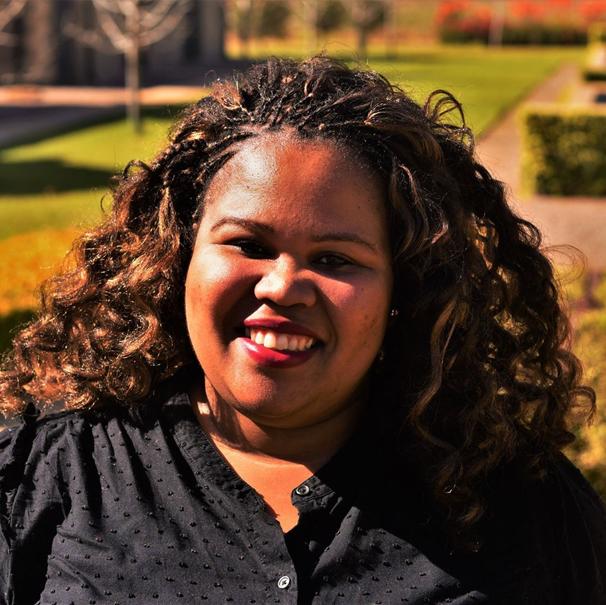

Kim Ooi is the coordinator (Grants and Funding) at the Atlantic Institute and provides high-quality support as coordinator for grants and funding in support of the work of Global Atlantic Fellows.

Fionnuala Sweeney is the multimedia editor at the Atlantic Institute involved in filming the convening. She brings editorial guidance to the Institute team, producing multimedia tools amplifying the work of Global Atlantic Fellows. She is a Global Atlantic Fellow for Equity in Brain Health.

18
Useful information for your trip
STAYING IN CONTACT
The Atlantic Institute team would like to ensure that your stay is as comfortable as possible. For any assistance you require, all staff members are available via standard texting and WhatsApp.
Kim Ooi (MAIN CONTACT) +447553517317
kim.ooi@atlanticfellows.org
Patronella Nqaba +27 785187688
p.nqaba@atlanticfellows.org

Khalil Goga +27 696929526
k.goga@atlanticfellows.org
In the first instance, please connect with Kim Ooi from the Atlantic Institute on WhatsApp unless in an emergency; or email her on: kim.ooi@atlanticfellows.org. WhatsApp can be downloaded on an Android, iPhone, MacWindows PC and Windows Phone.
A WHATSAPP GROUP (BRAIN HEALTH PERSPECTIVES)
This group will be created to allow us to keep in touch with each other in the run up to the convening and afterward too if you would like to keep in touch with one another.
The WhatsApp link is https://chat.whatsapp.com/K0h3aKE4PGZ4LMagmrKpzh
Free WiFi is available at the airport once you have landed. The hotel and the Nelson Mandela Foundation have stable WiFi connections.
If you require a SIM card for your mobile phone, we recommend that you buy one at airport arrivals you will be required to present your passport. If you would like to buy a SIM card outside of the airport, you will need to provide a passport and proof of residence (a hotel booking confirmation will usually suffice). Under South African law, all SIM cards must first be registered before they can be activated.
19
Mobile phone networks offer a pay-as-you-go option for airtime and data This means that you should be able to top up your cell service by purchasing vouchers at various stores during your stay.
TRANSPORT
Reed & McKay is making all of the flight arrangements. For those arriving by air, transport from the airport to the hotel will be arranged by Tshami Logistics. Transfer details will be emailed to you separately. The driver will be waiting for you at airport arrivals holding a “Welcome” sign with your name and the Atlantic Institute logo.
In the event that you are unable to find the driver or if you experience any delays, please contact Kim Ooi or the driver directly on the numbers below: Between 08:00 am and 20:00 pm from Nov. 13 to Nov. 20, 2022.
Nozie +27 60 406-2746
David +27 82 587-6332
Or email: nozi@tshami.co.za or amanda@tshami.co.za
HOTEL ACCOMMODATION AND MEALS
Your accommodation has been booked already at the hotel below:
HOTEL ADDRESS:
Radisson RED Johannesburg, Rosebank Hotel, 4 Parks Boulevard Oxford Parks, (corner of Oxford and Parks Boulevard) Dunkeld, Johannesburg, 2196, South Africa.
HOTEL CONTACT
Kele Mohathleng– Radisson RED Reservationist
Radisson RED Hotel, Johannesburg Rosebank
Tel: +27 10 023-3580/email: info.roseband@radissonred.com
ATLANTIC INSTITUTE EMAIL CONTACT DURING THE CONVENING
Refer to your itinerary for check in/check out details that you should have received by email. If you require a copy of the itinerary: please email: Kim.Ooi@atlanticfellows.org .

20
Please note that our hotel is a 10-minute car ride from the Nelson Mandela Foundation and transfers between the foundation and the hotel will be made each day. Please refer to the Program Agenda for the daily time for meeting in the lobby beforehand. If you do not arrive in time for the transport, you will be expected to arrange your own transport to the Nelson Mandela Foundation at your own cost.
PER DIEM AND MEALS
You will have received a per diem payment into your bank account or b4b card, which is for any self-organized meals and a contribution toward airport transfers from your home to the airport and return. The total amount is calculated at a rate of £25 (€29) for dinner and £15 (€17) for lunch in line with the Institute’s Travel Policy.
Breakfast is included with your room. The hotel restaurant opening times are 6:30 am–8.00pm. The restaurant takes orders for food and drinks until 7:30 pm.
Most of your meals will be arranged and paid for by the Atlantic Institute, with the exception of suppers on Oct. 11, 12 and 13. For these meals, you can use your per diem.

CLOTHING FOR THE TRIP
The convening is an informal space, so we encourage you to dress in whatever is comfortable. There will be movement sessions as part of the programming, so please wear clothing you can move around in with ease.
You can see from the hotel website that its facilities include a gym and pool, so if you want to use these facilities during your stay, please bring swimwear and sportswear.
You may want to opt for a smart-casual dress code when we have dinner at Marble and Queen Sheba.
THE WEATHER
The convening is taking place in springtime in South Africa, so the temperatures can range from 5 to 28 degrees Celsius (25-73 degrees Fahrenheit). The days are generally sunny, but mornings and evenings can be quite cold and there may be occasional rain showers.
21
HEALTH AND COVID-19 CARE

As a global community, participants have to balance numerous equity and health concerns and limit transmission through sticking to the highest cautionary advice and health regulations stipulated by the South African government. We are also mindful of our collective responsibility to act in ways that might reduce the risk of transmission which could result in serious illness and unnecessary loss of life, especially for those with underlying health conditions. Regardless of governmental or institutional guidelines, we as a community are committing to a collective care approach with a focus on solidarity and care for others. For this event, Fellows will receive masks in their welcome packs and are free to use them for the duration of the convening if they prefer to do so, but this is not mandatory.
Fellows displaying symptoms of illness should remain in their rooms and contact Patronella Nqaba, who will arrange medical support.

We expect all Fellows to be fully present at the convening, however we understand that in certain instances this may not be possible due to sickness, mental health or other conditions. Please contact Patronella if you are unable to attend a session.
EMERGENCIES
Safety is a concern in South Africa so please be vigilant. Be careful about which areas you go into and watch your belongings. If you have any concerns, you can inform the Atlantic Institute team or the hotel staff, who will try to assist in the best way possible.
22
SAFETY TIPS IN SOUTH AFRICA
● Tap water is safe to drink in the areas we are staying in. If water is unfiltered, there will usually be signs to indicate this.
● The food is generally of good quality, but use the usual caution you would show when traveling abroad when making your choices about eateries.
● It is not advisable to carry large sums of money. We recommend using debit/credit cards. (NOTE: Please let your bank know that you will be in South Africa to avoid problems accessing your accounts.)
● Avoid open displays of expensive jewelry, cameras and other valuables, including cell phones, which can be targeted by thieves.
● Avoid walking alone and try to stay in groups. Be alert to possible distraction thefts when one person tries to get your attention while another steals from you.
● Be careful with your phone in public, including when waiting for an Uber or texting “Snatch and grabs” are one of the most common crimes committed in the Rosebank area.
● Do not leave your luggage unattended.
● If in doubt, seek advice from Atlantic Institute staff or a Fellow who is South African.

More information on safety
TRAVEL INSURANCE
All travelers to the Brain Health Perspectives convening will be covered by the Rhodes Trust travel insurance policy provided by AIG Insurance. However, this cannot be used to make small claims for flight or luggage delays, or costs associated with immediate minor medical treatment. Therefore, all Fellows are advised to obtain a suitable single trip travel insurance policy to cover them for the duration of their trip to South Africa.
Travelers should ensure that they have adequate travel insurance before they travel. This may be provided by their company, bank, or university and check this with them in the first instance. Otherwise, Fellows must purchase their own travel insurance policy. The Atlantic Institute will support you with up to 50 GBP for these costs and this will be added to a per diem that will be sent to all Fellows for incidentals and travel costs. Please note that the per diem has been paid already. Insurance is limited to standard travel insurance. Please contact Kim Ooi if you have difficulties.
23
DOCUMENTATION AT THE AIRPORT
You may need to prove that you have a valid reason for entering South Africa to an immigration officer at border control. You may also be requested by airline staff at check-in to provide additional documentation to support your case, so please keep a printed copy of:
● Your return airline ticket

● Proof of accommodation
● Bank statements showing you have sufficient funds for the duration of the stay. Please contact Patronella Nqaba as soon as possible if this is a concern and we will arrange additional paperwork for you. All such information from you will be kept confidential.
● Your passport must be valid for at least six months before the date of return and must have three blank pages
PLUGS AND ADAPTORS IN SOUTH AFRICA
Due to an ongoing energy crisis, South Africa has scheduled blackouts of electricity supply, known as loadshedding. At certain hours during the day or night, you might experience power outages. However, your hotel and most of the venues we will be visiting have backup power to mitigate any inconvenience. Most plugs in South Africa are 15 amp with three-prongs or 5 amp with two-prongs and have round pins. Please bring a suitable adapter with you if you think you will need one or purchase one on your arrival as they will be available at the airport. Please note that changes in voltage may also affect your electronic devices.

24
MONEY
Major banks in South Africa have branches as well as automated teller machines (ATMs) in most large towns – and all over the cities. ATMs are linked to all major international networks and it is possible to draw currency from them. Visa and Mastercard are generally accepted across the country but please bear in mind that American Express cards are not always accepted. Additional international fees may be incurred for the use of debit and credit cards.
For Fellows extending their stay in Johannesburg, banks are widely available in major shopping malls. It is recommended that you only use ATMs at malls or busy areas.

Radisson RED is close to the Rosebank Mall shopping center where you can purchase incidentals and access an ATM. If you require support with any incidental purchases, please contact Kim

25
Photography and Videography
Photography and filming will be taking place at various points during the week. As part of completing the travel form, you indicated your preference to be included in this If your preference has changed, please email Fionnuala Sweeney
Your own Outputs
As part of your participation in this convening, you may be asked to share your experience with both the global Atlantic community and the wider public by writing a blog, recording an audio blog, or taking photos or a video selfie. This can be done either individually or collectively with participating Fellows from other programs. You may be contacted by a program staff member during the convening about contributing one of the above or, if you prefer to volunteer, you may do so by contacting any of the program staff onsite.
The Hub and Social Media
Use the Atlantic Fellows Hub to connect and collaborate with Atlantic Fellows, Global Atlantic Fellows and other program staff, and share photos or messages about the convening with the community.

Be sure to follow @atlanticfellows on Facebook, X Twitter, LinkedIn and Instagram to stay up to date about all the exciting things happening at the Atlantic Institute. And please post your own photos while you are at the convening Please ensure, however, that everyone in the photo is happy to appear so ask their permission before their photo goes onto social media.
The hashtag for this convening is #ABHNbrainhealth23
26
In and around Johannesburg
A STORY OF JOHANNESBURG

Johannesburg, an economic hub of South Africa, was founded in 1886 following the discovery of gold. It was a mining town and many flocked to it as part of a gold rush, looking for a means of amassing wealth and personal fortunes. However, before then, peoples had long inhabited the region: the San and Bantu peoples were among the earliest inhabitants and the San peoples are thought to be the first cultures of Southern Africa.
A history of movement and displacement has long defined Johannesburg. Many early Afrikaner inhabitants came to the area during the Great Trek (Great Walk) when they left other parts of the country due to the imposition of British rule Johannesburg was initially part of the Transvaal, an independent Afrikaner or Boer republic.

27
Colonialism and apartheid has left an indelible mark on Johannesburg and its inhabitants so that the cruelty of the system and its structural legacies remain. However, Johannesburg has a long history of resistance. Organized opposition to unfair labor practices developed and protest movements against colonialism and apartheid have always been strong here. Since the end of apartheid, many more people from across the world have made Johannesburg their home to seek a better life. It is now a city with people from across the country, continent and world.
GETTING AROUND (outside of the official tour)
If you are arriving early or extending your stay and would like to explore Johannesburg and surrounding areas, for your safety and convenience we recommend that you use the following transport options:
Ride Hailing Services

Uber and Bolt are commonly used in South Africa. You will need to download their apps on your mobile phone in order to access their services.
Gautrain
Both fast and reliable, the Gautrain is a rapid rail service that links Johannesburg, Pretoria and/or Tambo International Airport. The closest station to your hotel in Johannesburg is the Rosebank Station located on Oxford Rd. Buy a Gautrain Swift/ Gold Card at the stations and top it up for your journey. Each Gautrain station is served by a Gautrain bus network linking commuters to nearby suburbs. Please note that Gautrain buses are only available on weekdays and no weekend bus services are available. The Gautrain hotline: 0800 428 872 46.
FURTHER OUT
If you would like to explore the city, there are a number of different areas and options. An easy option is to take the City Sightseeing Bus: contact +27 861 733 287. The double-decker red bus takes you on 16 stops that cover 20 attractions in Johannesburg.
Dlala Nje aims to challenge perceptions and create opportunities with a tour comprised of inner-city immersions and experiences.
AirBnB offers a number of experiences in which Fellows can learn more about the city.
28
Johannesburg Travel Guide
DINING OUT
The Zone Rosebank: A safe and lively space, The Zone at 177 Oxford Rd. offers a number of restaurant options to cater for a wide range of culinary tastes, including:
● Nando’s (a South African icon)
● Mama Samba (contemporary)
● Father Coffee (coffee)
● Piza eVino (Italian and craft beer)
● RoccoMamas (smash burger joint)
● Tasha’s (modern brunch)
● Modern Tailors (Indian)
Park Corner: A vibrant street corner at 144 Jan Smuts Ave. There is a variety of buzzing restaurants, including Street Bar Named Desire, Coalition Pizza, Saigon Suzy and others.
More information about restaurants and food options in the area.

SHOPPING Rosebank Mall
The Rosebank mall should suffice in terms of incidental shopping, gifts and souvenirs. For more unique gifts, check out We are EGG and Soko District for unique gifts from South African designers. There are also souvenirs for sale at the African Craft Market of Rosebank. The mall hosts an outdoor Sunday market with food, drink and shopping options.
Victoria Yards is building an eco-system where tenants thrive as a community by presenting a uniquely integrated urban complex that is as much about social development as it is about commercial enterprise. Unique artisans make this a great shopping destination. It is open 9:00-17:00 on weekdays; 10:00-17:00 on Saturdays; and 10:00-16:00 on Sundays.
AFRICAN CUISINE
Johannesburg’s relentless pace slows down in the evening, so note that many of its restaurant kitchens are closed by 22.00pm and some restaurants do not open on
29
Mondays Remember to plan for nights out in advance and call the restaurants to check on kitchen closing times. For African/African fusion dishes, we suggest you try some of the restaurants listed here:
Yeoville Dinner Club (African Fusion Cuisine): 24 Rockey Street (1st Floor), Yeoville, Johannesburg; tel: +27 83 447 4235 Please arrange transport and booking beforehand as Uber does not travel to the area and note that the area is not safe. See Anthony Bourdain’s visit there
Queen Sheba (Ethiopian Food): 106 Algernon Road, Corner of Algernon and Grant Avenue, Norwood, Johannesburg. (We have arranged a meal for all of you here during the convening).
Insights Restaurant (Contemporary South African): 4 Thirteenth Avenue, Houghton Estate, Johannesburg, 2198 This is a place to enjoy and share delicious meals with friends and family, just like Madiba loved to The restaurant serves as a tribute to his favourite dishes
BARS AND PUBS
Johannesburg has a vibrant nightlife. Depending on your interests and the type of experience you wish you have, there are neighborhoods that we would recommend due to their proximity to the hotel. These include Melville, Parkwood/Rosebank, Parkhurst and Braamfontein
Kitchener's Carvery Bar: 71 Juta St., Braamfontein, Johannesburg; tel. +27 11 403 0166
Great Dane: 5 De Beer St., Braamfontein, Johannesburg; tel. +27 11 403 1136
Hell’s Kitchen: 7th St., Melville, Johannesburg; tel. +27 79 980 9591
Niki’s Oasis Restaurant & Jazz Bar: 138 Lilian Ngoyi St., Newton Cultural Precinct, Johannesburg; tel. +27 11 838 9733
ARTS AND CULTURE
Keyes Art Mile: Keyes Avenue, Rosebank. This is the newest art precinct in Johannesburg, and consists of galleries, design stores and restaurants.

30
Other galleries nearby include CIRCA, Everard Read and the Goodman Gallery.
Johannesburg Art Gallery: Corner of Klein and King George St., Joubert Park; tel. +27 11 725 3130
Wits Art Museum: Corner of Jorissen and Bertha St.; tel.+27 11 717 1365
SHOPPING AND MARKETS
Oriental Plaza (old Indian market): Newtown Cultural Precinct, Johannesburg; tel. +27 11 838 6752
Hyde Park Corner: A shopping mall with a mix of international and local brands. It also has a number of restaurants, cafes, and art galleries.
Melrose Arch: Melrose Arch is a shopping district with a mix of international and local brands. It also has a number of restaurants, cafes, and bars.
Nelson Mandela Square: A popular tourist destination with a number of restaurants, shops, and art galleries. It's also a great place to take a photo with the famous Nelson Mandela statue
44 Stanley: A mixed-use development that includes a number of independent shops, restaurants, and bars. It's a great place to find unique and handmade goods.
Melville: A trendy suburb with a number of independent shops, restaurants, and bars. It's a great place to find unique and handmade goods.
MUSEUMS
Wits Origins Centre Museum: Yale Rd., Enoch Sontonga Ave.; tel. +27 11 717 4700

Apartheid Museum: Northern Parkway and Gold Reef Rd. 2001
Liliesleaf Farm: The farm was a secret meeting place for the African National Congress (ANC) during the apartheid era. Raided by police in 1963, many leading ANC members were arrested. Today, Liliesleaf Farm is a museum that tells the story of the ANC and its struggle against apartheid.
31
Hector Pieterson Museum: The museum tells the story of the Soweto Uprising of 1976. The uprising was a student protest against the forced use of Afrikaans in schools. During the uprising, police opened fire on the students, killing 13-year-old Hector Pieterson. The museum is located in the house where Hector Pieterson lived and died. The house has been preserved in its original state and contains many of Hector Pieterson's personal belongings.
THEATERS
Wits Theatre: 24 Station St., Johannesburg; tel. +27 861 22 55 98
Joburg Theatre: Loveday St. and Hoofd St., Johannesburg +27 861 670 670 or +27 11 877 6855
Market Theatre: 56 Margaret Mcingana St, Newtown, Johannesburg; tel. +27 11 832 1641
OUTSIDE OF THE BOX
Gold Reef Theme Park: Northern Pkwy & Data Cresc., Ormonde 99-Ir, Johannesburg; tel. +27 11 248 6800
Soweto Towers: (Bungee Jumping) Vertical Adventure Centre
Chris Hani Rd., Klipspruit 318-Iq; tel. +27 71 674 4343 |

NATURE AND EXCURSIONS
Zoo Lake: A park with a lake that has boat tours. Ideal for picnic and relaxing Cnr Jan Smuts and West World Street, Parkview
Melville Koppies Nature Reserve: A popular hiking and heritage spot in Johannesburg 4 Judith Rd, Emmarentia, Randburg.
If you would like to travel a bit further, there are a number of options to see wildlife. Please note, these are longer journeys and require additional planning. We recommend you research the options beforehand.
Croc City Crocodile and Reptile Park
Corner of Cedar Rd. & R114 Nietgedacht 535 Chartwell, Chartwell; tel. +27 83 327 1016
32
Pilanesberg National Park: A national park located just two hours north of Johannesburg and home to animals that include lions, elephants, rhinos, and buffalo. Visitors can go on a guided safari or drive through the park themselves.

Lion and Safari Park: R512 Pelindaba Rd., Hartbeespoort, Broederstroom; tel: +27 87 1500 100. For self-drives, guided tours, bush walks and horseback safaris to see lions, giraffes and other animals.
Ann van Dyk Cheetah Centre: Near Hartbeespoort Dam at the base of the Magaliesberg of North West Province, this non-profit organization relies on tours and donations to fund its conservation projects; tel.+ 27 12 504 3306/7/8
The Cradle of Humankind: This UNESCO World Heritage Site located just outside of Johannesburg is home to a number of archaeological sites where fossils of early hominins have been found. Visitors can take a tour of the Sterkfontein Caves, where the famous Mrs. Ples fossil was found.
Dinokeng Game Reserve: Game Reserve R734, Pretoria; tel. +27 12 711 4391. Go to the the only Big 5 reserve in Gauteng.

33
Pre-Reading List
If you’re curious about different aspects of brain health or health, a few resources are listed below. This is not a comprehensive list and not essential. Please feel free to add a resource or aspects of your own work too
General: brain health
��The World Health Organization brain health summary and articles.

��Seven Healthy Habits May Help Cut Dementia Risk, Study Says, The Guardian.
��World Federation of Neurology - Introduction to Brain Health
Hear/Say Project: A training program for Atlantic Fellows and staff at GBHI that culminated in a book, Readers’ Theater event, and a documentary film.
��Say It Forward: A Guide to Social Justice Storytelling
Useful information provided by the Global Brain Health Institute to mark an event on Global Neurology.
Lifecourse Approaches to Support Brain Health - Economic Challenges & Priorities (a series of papers to choose from)
Indigenous approaches and mental health/ dementia
��Promoting Indigenous mental health: Cultural perspectives on healing from Native counsellors in Canada by Suzanne L. Stewart, University of Toronto
The Circle of Life: Indigenous Knowledge about Dementia in Canada, Alzheimer's Disease International
��Traditional healing and medicine in dementia care for indigenous populations in North America, Australia, and New Zealand: A scoping review protocol by Hom Lal Shresha et al, Alzheimer’s Association.
Cultural determinants of health
��Culture is Key: Towards Cultural Determinants-Driven Health Policy, Lowitja Institute, Australia.
34
��Lowitja Roundtable Meeting, Cultural Determinants of Health, Dr Janine Mohamed, CEO of Lowitja Institute.
��Pathways to Research, Associate Professor Ray Lovett, a Ngiyampaa/Wongaibon man, speaking about cultural determinants of health, Lowitja Institute.
Economic factors and health

��Food insecurity and coping strategies and their association with anxiety and depression: a nationally represenative South African survey by Siphiwe N Dlamini et al in Public Health Nutrition.
Trauma and brain health
��Exposure to the troubles in Northern Ireland, memory functioning, and social activity engagement: results from NICOLA by Joanna E McHugh Power et al in the European Journal of Ageing.
Artificial intelligence and brain health
��Navigating the Age of AI: The Role of a New Brain Industry by Harris A. Eyre et al in Psychology Today.
Art and brain health
��Africa Brain Health Network at Creative Brain Week 2023, Trinity College Dublin: Virginia Sturm(00:01:20),Justine Foster(00:23:00) (Not ABHN members).
@ABHNetwork (00:46:00) represented by Bongiwe Lusizi (00:46:48) Sibusiso
Fihlani (00:55:00) Kirti Ranchod (01:00:05) Funmi Akindejoye (1:09:37) and Lena Stofile (1:24:05)
SOME OF OUR FAVORITE BOOKS ABOUT SOUTH AFRICA
�� Shirley, Goodness and Mercy is a book about a young boy growing up in Newclare, Coronationville and Riverlea during the apartheid era
�� A Thousand Tales of Johannesburg is a novel that documents and probes the lives of the inhabitants of this incomparable African city – the exiled, those returning from exile, and those who never left.
�� Zulu Shaman contains 14 Zulu myths as told by a traditional Zulu story keeper and a revelation of Zulu shamanic practices, including healing techniques, dreamwork, oracles, prophecy, and interactions with star beings
35
Data Management
All personal information provided will be stored and processed by the Atlantic Institute in line with our Privacy Policy and the GDPR principles. When you submitted your application to participate in this event you agreed that you have read and understood the Atlantic Institute’s Privacy Policy on how we collect and use your information to administrate, research, communicate, build and support the global Atlantic Fellows Community.
We should communicate with you if there are any recordings taking place on the event so you can make an informed decision about whether and how you wish to participate.
If you have any questions, comments or concerns about how your data will be managed, please contact Daniel Salazar, Data Insight Lead.
About the Atlantic Institute

The Atlantic Institute was established in 2016 with the support of The Atlantic Philanthropies, and in collaboration with the Rhodes Trust, Oxford (UK). The Atlantic Institute vision is to harness the collective power, leadership and creativity of the Atlantic community, building a flourishing ecosystem of global changemakers who connect and collaborate across borders, developing (k)new perspectives, knowledge and skills in order to build equitable organizations, communities, nations and a more just world.
See the website
36






































